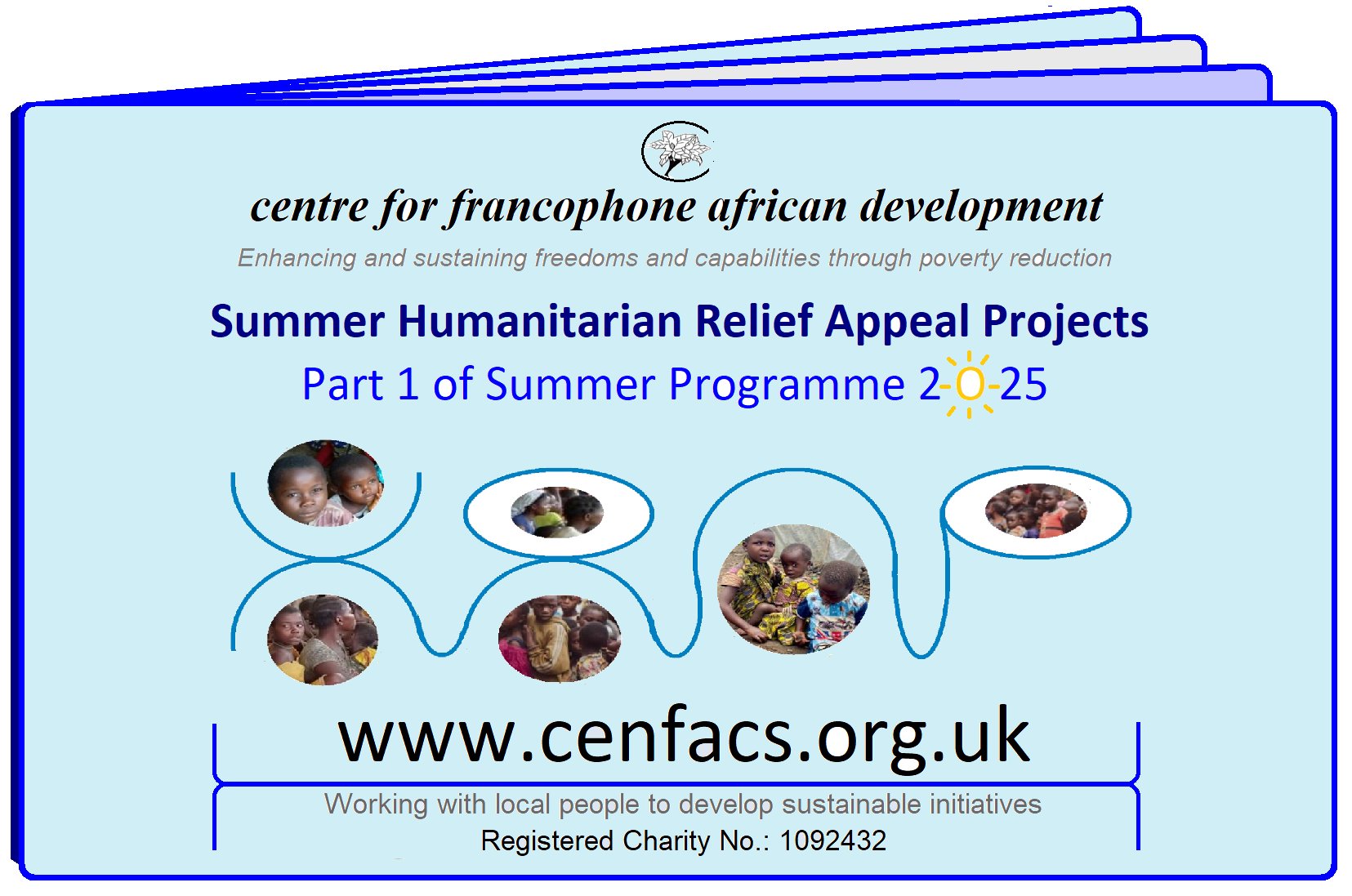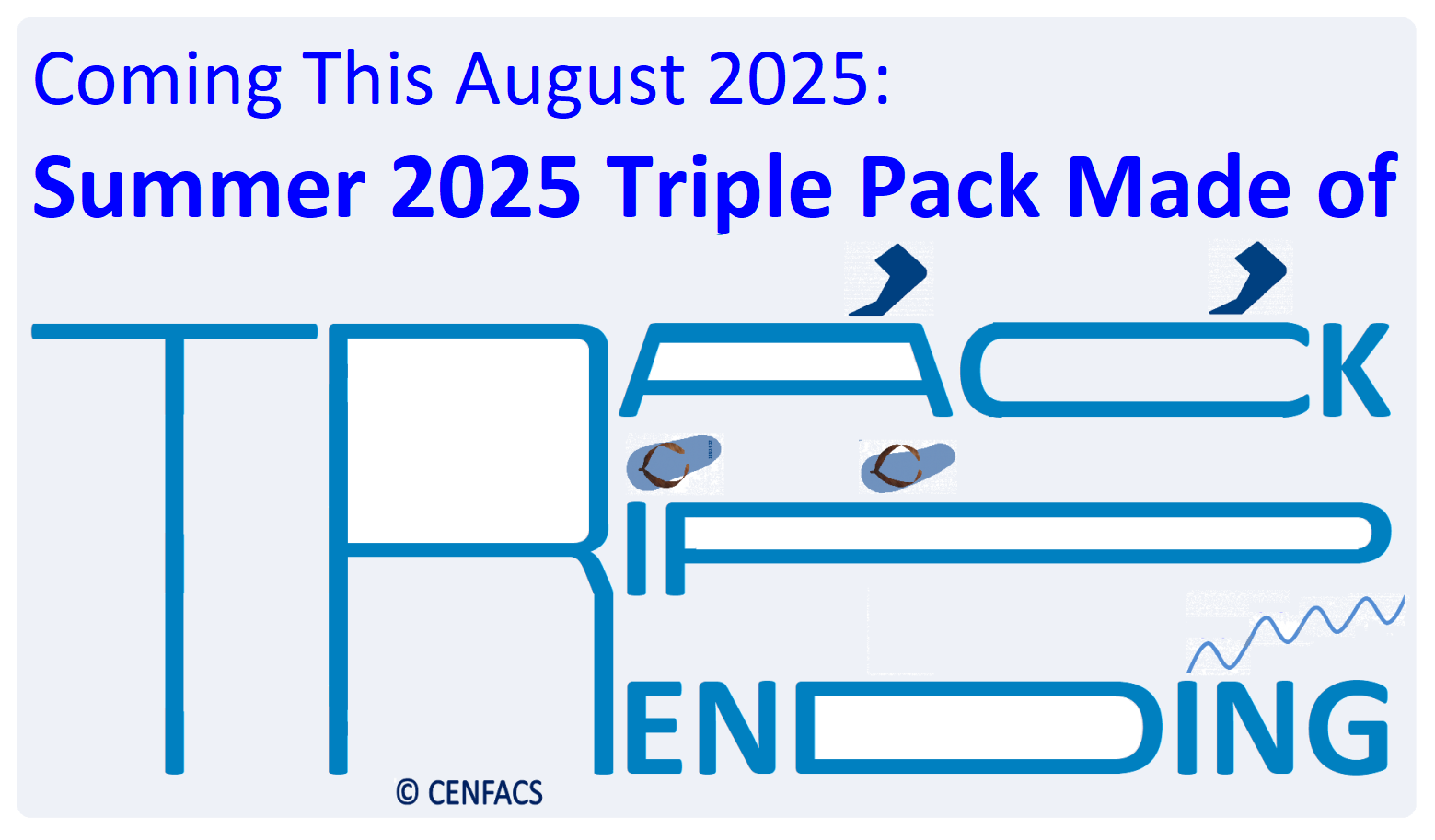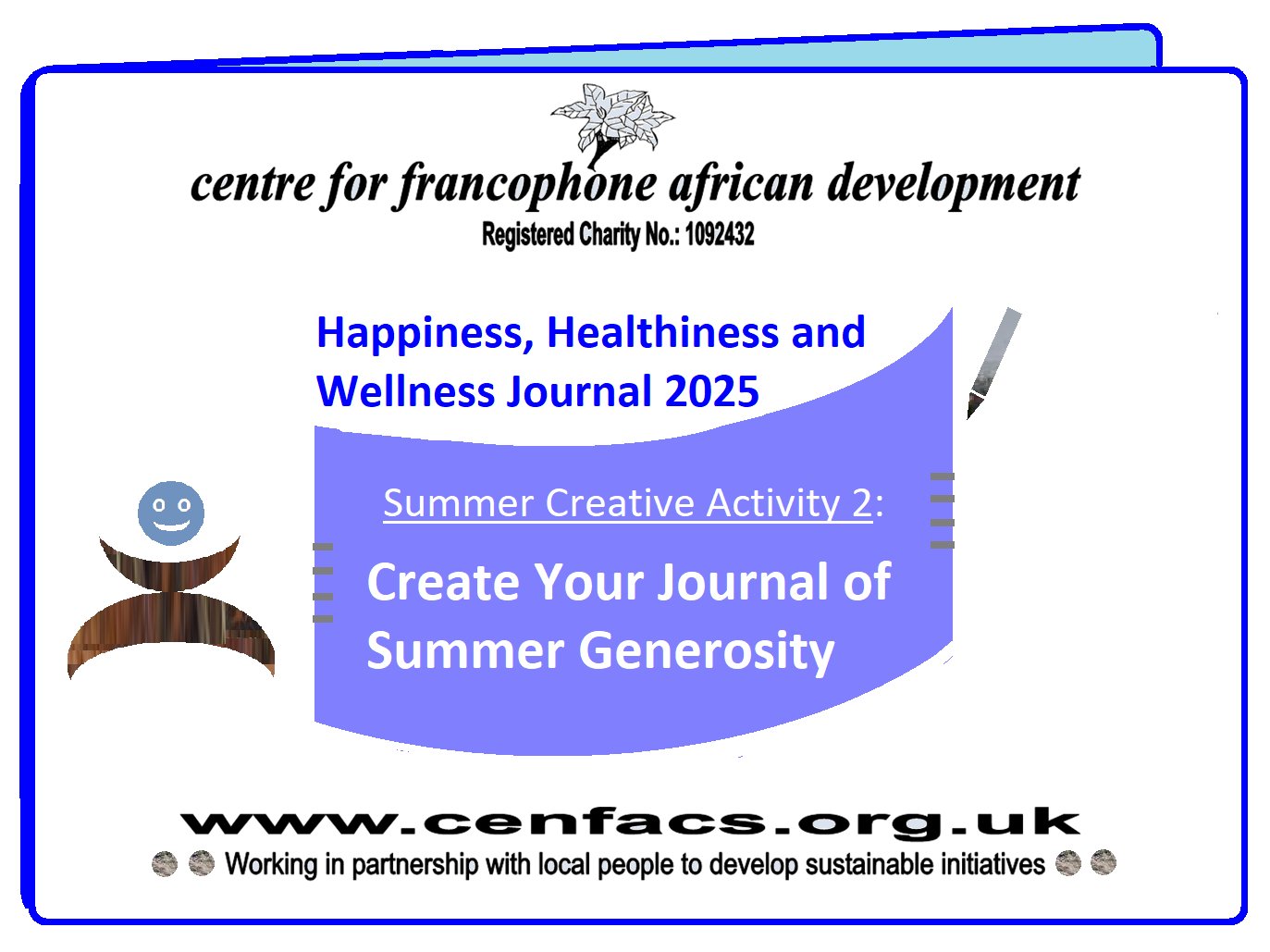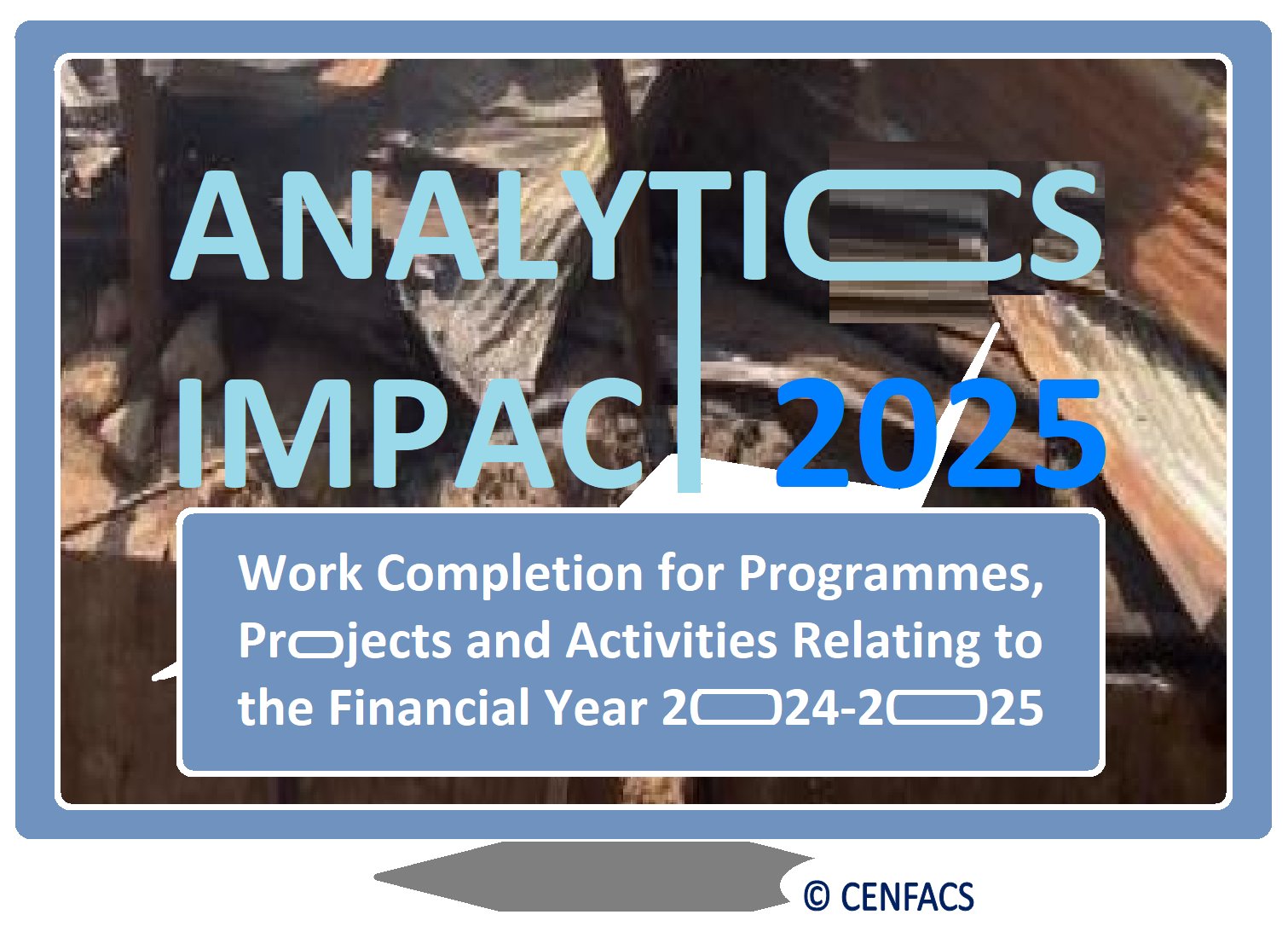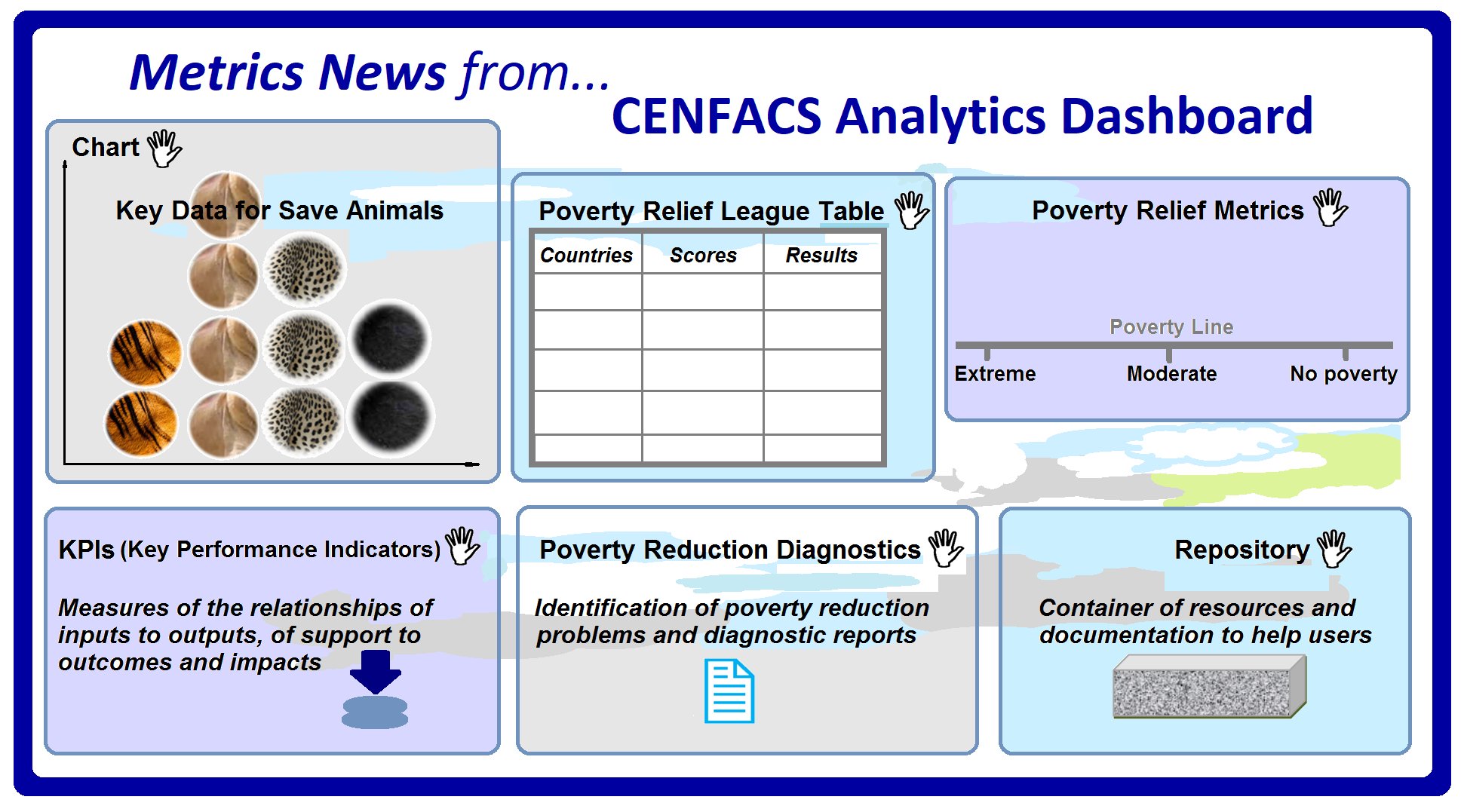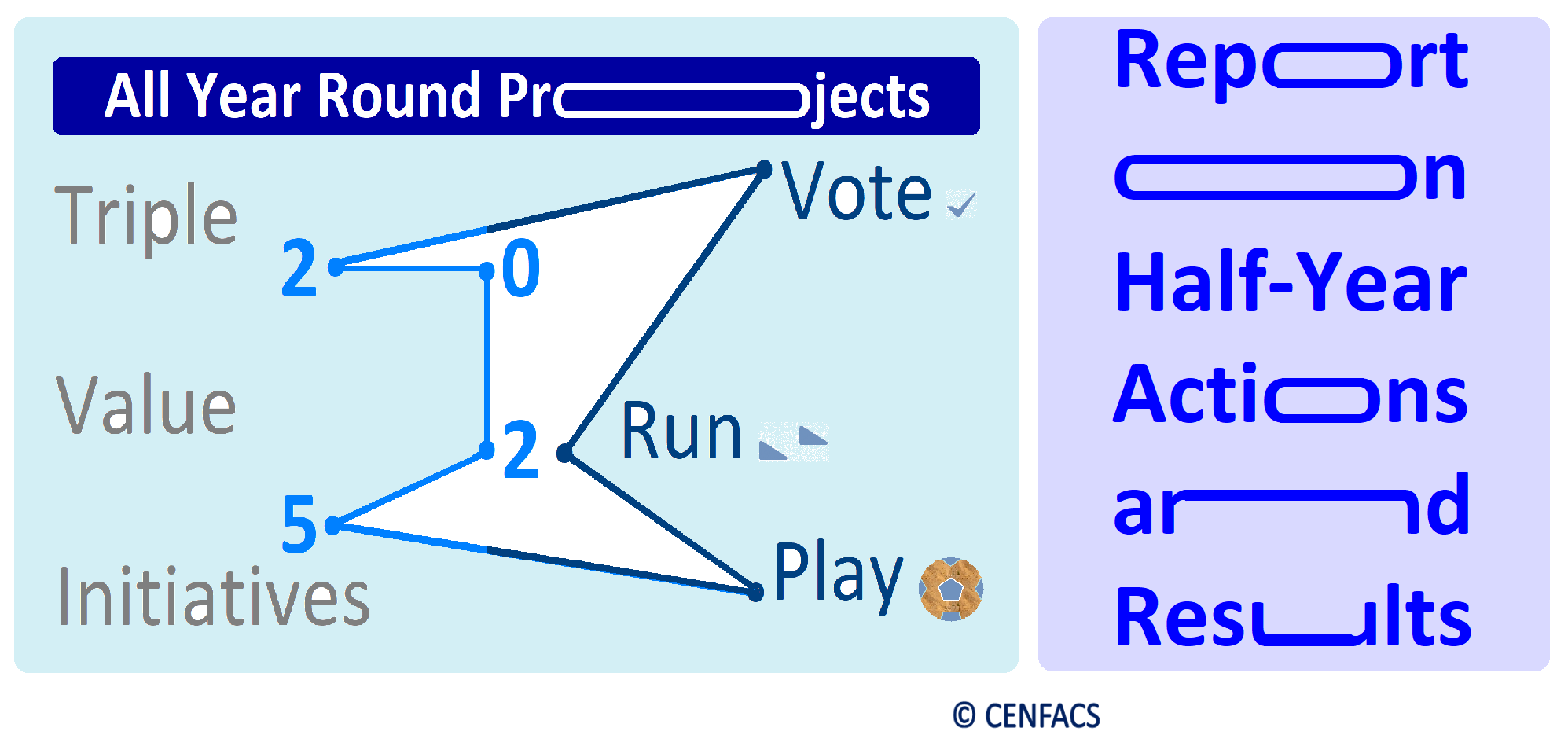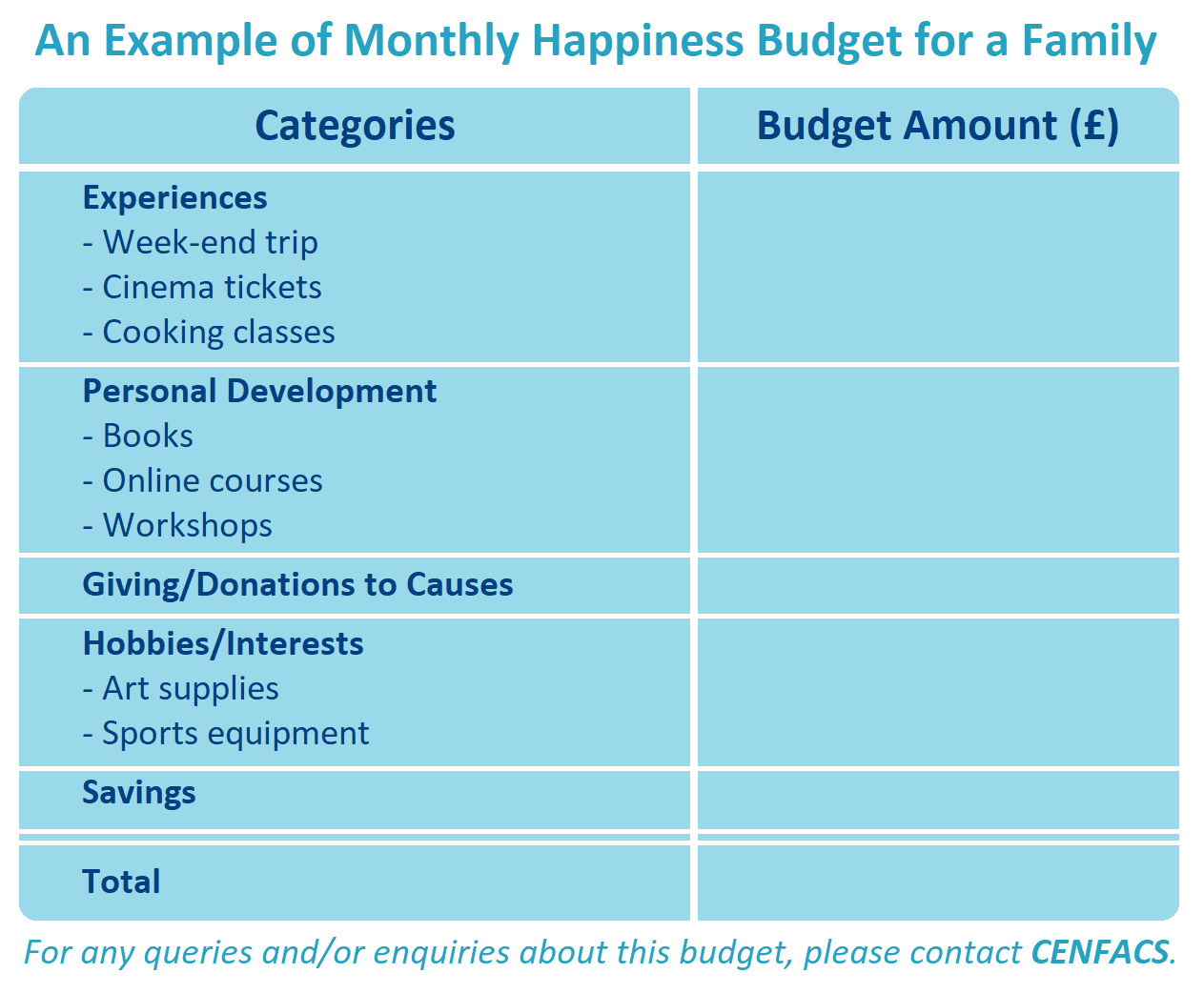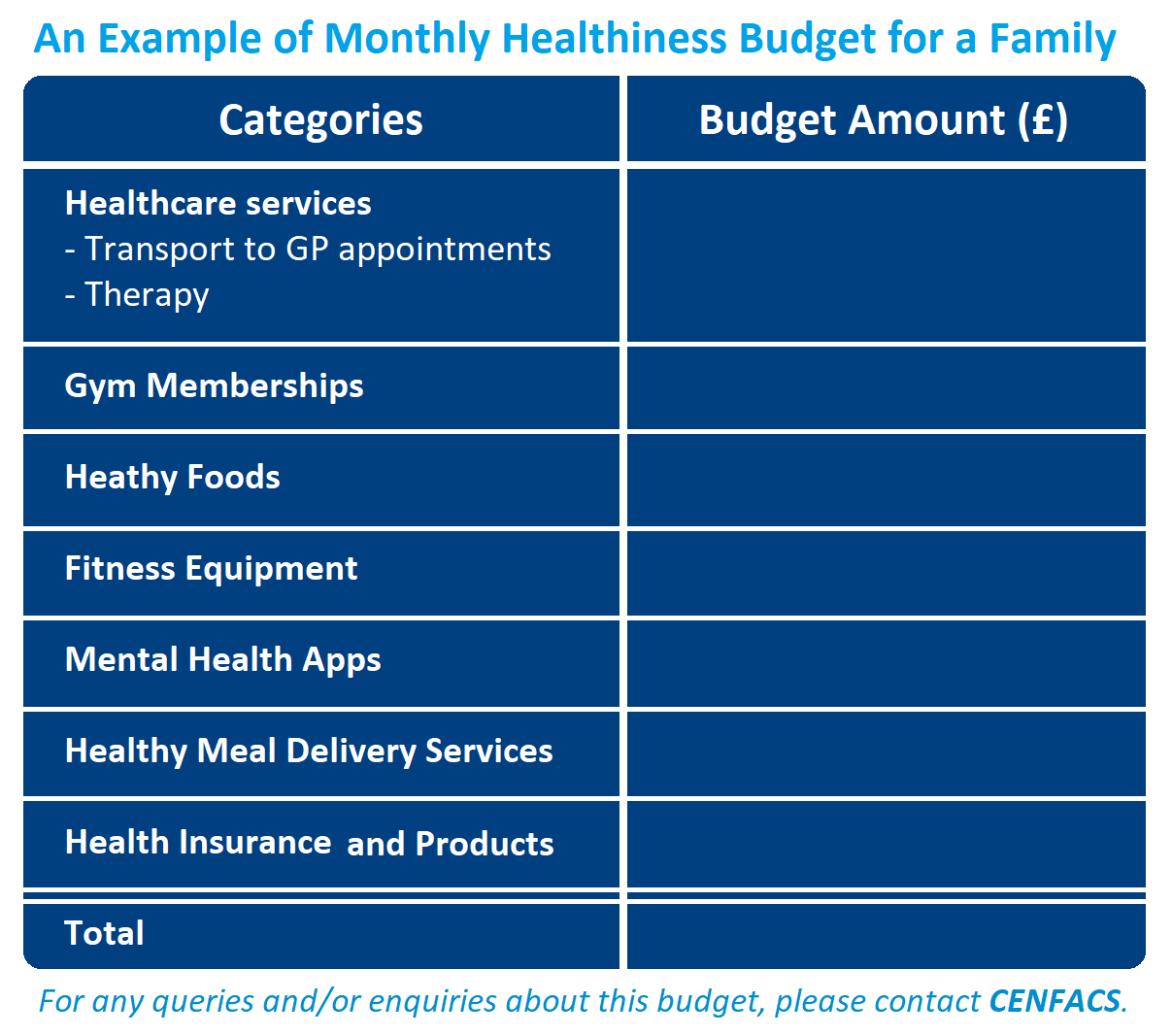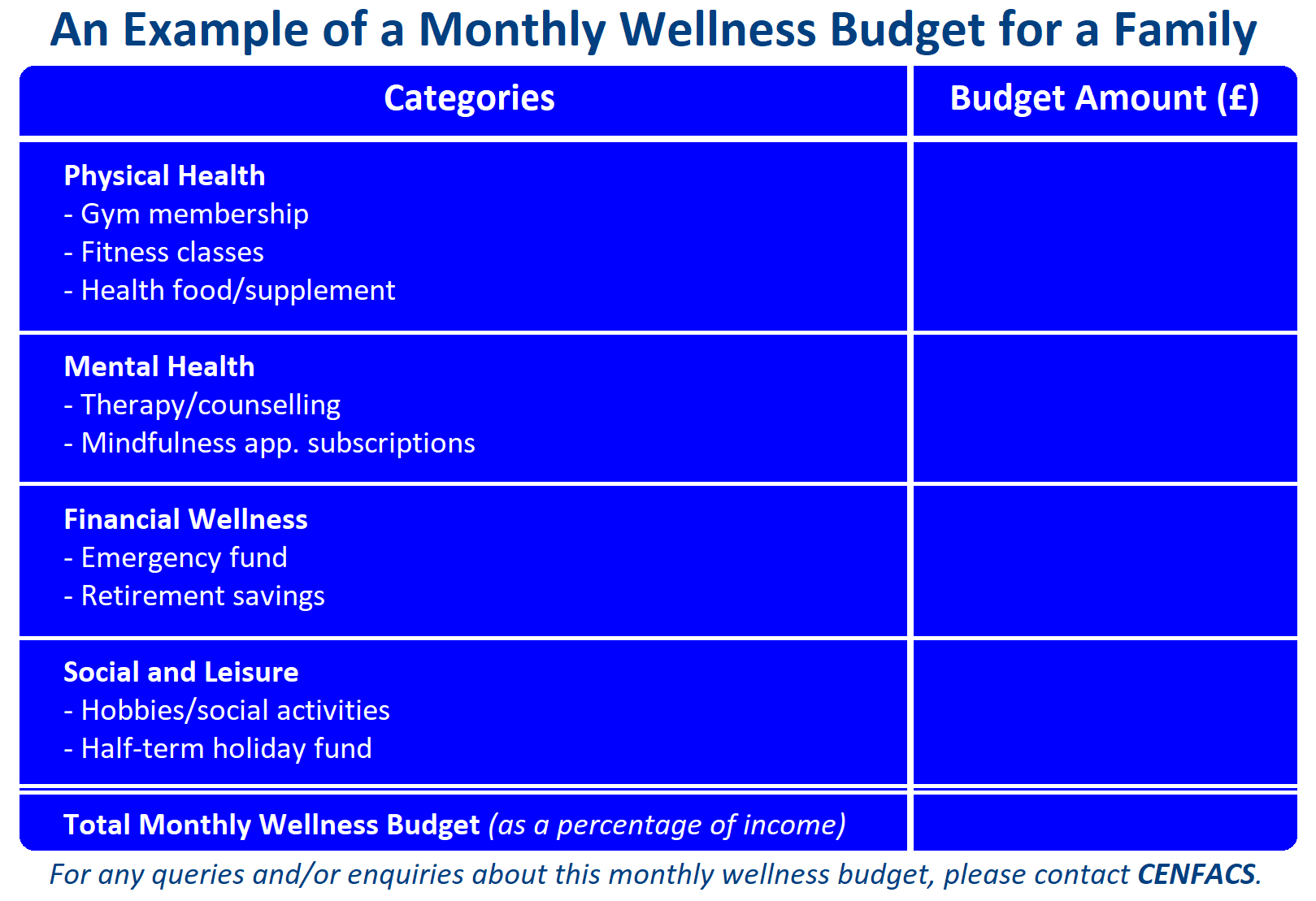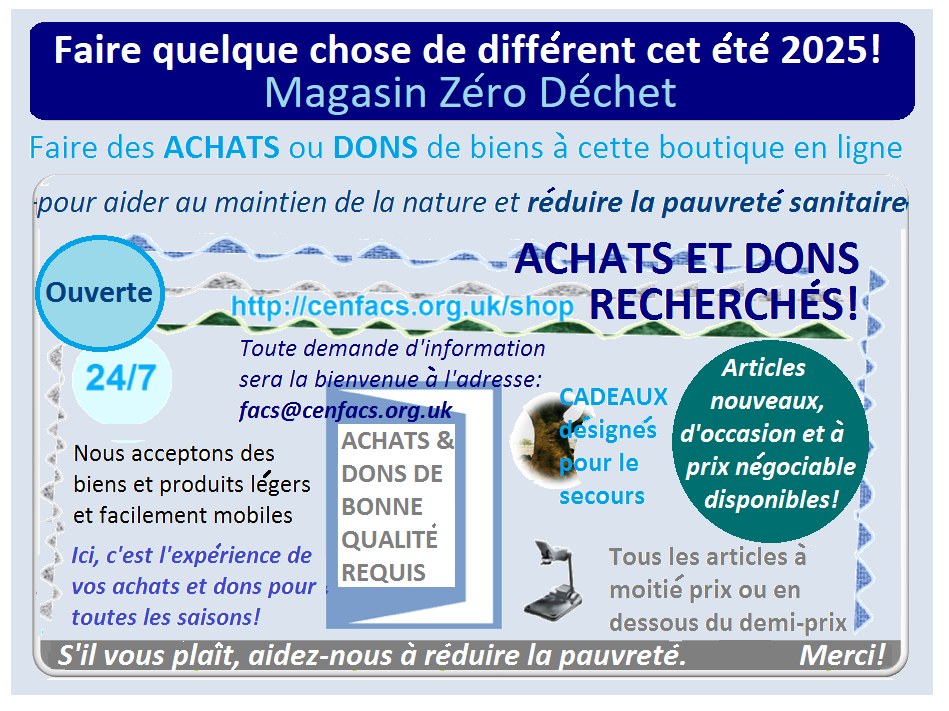Welcome to CENFACS’ Online Diary!
30 July 2025
Post No. 415
The Week’s Contents
• All Poor, Poor Children, Young Carers and Families Would Be Thankful for Your Support
• Happiness, Healthiness and Wellness Journal, Creative Activity No. 2: Create Your Journal of Summer Generosity
• Completion of Work on Data Analytics and Impact for Programmes, Projects and Activities for Financial Year 2024-2025
… And much more!
Key Messages
• All Poor, Poor Children, Young Carers and Families Would Be Thankful for Your Support
All poor, children who need networking to protect them, undervalued young carers and poor families with children trying to tackle poverty via sports in Africa; they all need your donations and gifts. They are calling for your assistance as the following data and facts speak for them.
• • Data and Facts Speaking for All poor, Unprotected Children, Undervalued Young Carers and Those Lacking Opportunity to Practise Sports
The State of African Children 2025 Statistical Compendium produced by ‘data.unicef.org’ (1) provides the following data and facts for African Union:
a) The percentage of child labour in Africa Union was 24 between 2015 and 2023;
b) Under-five mortality rate was 66 in 2022;
c) Total learning poverty rate was 81 in Africa Union;
d) The percentage of adolescents not in education, employment, or training was 14 for male and 21 for female.
The above figures highlight the problems children and young people face in African Union in terms of child protection, learning and transition to work.
Still speaking about child protection, ‘unicef.org’ (2) argues that
“Nearly one in three teenage girls have been beaten or hit since the age of 15 and one in 10 raped or sexually abused;
Child marriage – a serious violation of children’s rights – affects four in 10 girls aged 20-24 who were married before their 18th birthday [in West and Central Africa]”.
Similarly, reporting on humanitarian need assistance, ‘reliefweb.int’ (3) states that
“In 2025, an estimated 46 million children in West and Central Africa will need humanitarian assistance as a result of protracted and acute conflicts, displacements, public health emergencies and natural disasters”.
Besides the above-mentioned data relating to child protection, there are also data and facts associated with young caregiving in Africa. According to a scoping review from Bristol University Press Digital (4),
“While the precise number of young caregivers in Africa is difficult to determine due to limited data and varied definitions, studies suggest a significant prevalence, with some estimates indicating that around 8% of households in sub-Saharan Africa may have a young person taking on significant caregiving responsibilities”.
The same Bristol University Press Digital highlights that
“This caregiving can involve a wide range of tasks from basic household chores and child care to providing personal care and even contributing financially to the household”.
Likewise, the jointly report produced by the African Union, African Development Bank, United Nations Development and the United Nations Economic Commission for Africa (5) indicates that
“The indicator 5.3.4 of Africa’s Agenda 2063 requires a percent increase of youth and women participating in integrated agricultural value chains; and to empower youth for entrepreneurship and create jobs for them in a climate adaptation and resilience”.
Yet, many of the impoverished youth and women in Africa are unable to participate in these chains.
Furthermore, there are poor families in Africa seeking for sports to make a difference in the life of their children. Yet, there are costs (including those of specialist equipment and sportswear) that are prohibiting these poor to play the sports that will help them escape from poverty. These poor children and youth have no access to sports and sustainable development opportunities to help them escape from poverty. Yet, “identifying and nurturing young athletic talent is crucial for effective sports development”, argues ‘africanleadershipmagazine.co.uk” (6).
There is a need to help and invest in poor children and youngsters (aged between 5 and 18 ) to take the opportunities of the sports sector to reduce poverty and enhance sustainable development in Africa.
All poor, unprotected children, undervalued young carers and those poor suffering from the lack of opportunities in sport development and sustainable development; they all are asking for support to reduce and or end the type of poverty they are experiencing.
• • Supporting All poor, Unprotected Children, Undervalued Young Carers and Those Lacking Opportunity to Practise Sports
∝ You can help
– reduce the trends, inequities and drivers of poverty in early childhood in Africa
– provide sufficient dietary intake of essential nutrients to these children
– children and families trapped in a cycle of poverty and deprivation in Africa this Summer.
∝ You can support these poorest children and adolescents, who are looking to get physically active, to live a happier, healthier and well fulfilling lives through sports. You can help these children and adolescents to reduce poverty due to the lack of sports development and improve their physical and emotional well-being.
∝ You can back the young unpaid carers (that is, children and young persons under 18 who provide or intend to provide care, assistance, or support to another family member) of Africa to meet their needs of education, social care, health, wellbeing and pensions. In doing so, your support will help improve their living conditions while eradicating poverty amongst them.
To support them, one may need to know what they are exactly requesting.
• • Summaries of the Requests from All poor, Unprotected Children, Undervalued Young Carers and Those Lacking Opportunity to Practise Sports
Their requests are summarised inside the 2025 Edition of CENFACS’ Summer Humanitarian Appeal Projects.
The projects making this appeal include the following:
√ Support Vulnerable Children in Africa Left Without Hope by Foreign Aid Cuts.
√ All Gifts for All Poor
√ International Networking and Protection against Crises
√ Iconic Young Carer
√ ELCLASSICO International.
Except Support Vulnerable Children in Africa Left Without Hope by Foreign Aid Cuts, the other four projects have been highlighted under the Main Development section of this post. The highlight about Support Vulnerable Children in Africa Left Without Hope by Foreign Aid Cuts can be found at cenfacs.org.uk/supporting-us/
The above five projects require donation or funding or influence.
The fundraising and influencing campaign for them will end by 22 September 2025.
To support and or enquire about these humanitarian relief appeal projects, please contact CENFACS.
• Happiness, Healthiness and Wellness Journal, Creative Activity No. 2: Create Your Journal of Summer Generosity
Like last Summer, this Summer is tough for many ordinary people and families since higher costs of living can only make things difficult for them. Many of these poor people and families are looking for unselfish help and support or simply generosity.
Generosity is one of the six predictors of happiness and healthiness. One can create a journal about what they are giving (or gave) or are receiving (or received) unselfishly. Before creating this journal, it is better to understand Summer generosity.
• • What Is Summer Generosity?
Summer generosity can involve being kind, giving, and sharing during the summer months. It could also be about giving your time, effort, and emotional support. It is indeed about actively seizing opportunities to help others and make a positive impact, whether it is through donating to a good cause, volunteering time, or simply offering a helping hand. This sort of ways of helping others or receiving from others can get unnoticed. Perhaps, one way of remembering them is to write a journal.
• • Creating a Journal of Summer Generosity
For those who would manage to receive this generous support; they can create a journal for the things, organisations and people who have been unselfishly supportive to their happiness, healthiness and wellness during this Summer 2025.
For those who would give or be kind or even sharing with others; they can as well journal their experience of Acts of Giving or Kindness or Sharing.
• • Recording Your Thoughts, Feelings and Experiences
Both receivers and givers can record their thoughts, feelings and experiences in relation to the generous support they have received or given. They can share with the community their experience of happy and healthy generous support. This can be recorded in their journal and be shared by the end of Summer 2025.
To share the contents of their happiness, healthiness and wellness journal relating to philanthropic support, and help build a better Summer holiday experience; they can contact CENFACS.
• Completion of Work on Data Analytics and Impact for Programmes, Projects and Activities for Financial Year 2024-2025
Without rewarding to ourselves a work completion certificate, we hope to finish our 2024-2025 Data Analytics and Impact Work by the 31st of July 2025, as planned. For those who have not yet told us what they think about the 2024-2025 Programmes, Projects and Activities they can say it by the end of tomorrow.
We would very much appreciate if they could provide us their feedback…
(a) via e-mail, text, phone, web comments or reviews
(b) in their own words, numbers, voices and information graphics (info-graphics).
They can briefly explain the way in which the 2024-2025 programmes, projects and activities have affected them or the people they recommended to use them or their organisation or sister organisation.
We would very much appreciate if their feedback could be specific, timely, respectful and aligned with CENFACS‘ mission, goals and values.
They could rate (by using numbers or percentages or ratios) these programmes/projects/activities or provide a statement (by using words) or even give a chart or table (as information graphics). They can as well record their voice and run a video or short film. This is aptly up to them.
Please remember, we can only help reduce poverty and do the changes we all want if you tell us what you think; not us only telling you what we do.
Please consider our request for an independent feedback and for your testimonial support.
Please use the end of July 2025 to reach us with your say if you have not done it so far. Thank you!
Extra Messages
• Reporting on Metrics from CENFACS Analytics Dashboard
• Report on Half-year Actions and Results about 2025 Run, Play and Vote to Reduce Poverty
• Advice on Happiness, Healthiness and Wellness Budgets for Families
• Reporting on Metrics from CENFACS Analytics Dashboard
Before Reporting on Metrics or giving the Metrics News from CENFACS Analytics Dashboard, let us briefly explain this dashboard.
• • What Is CENFACS Analytics Dashboard?
CENFACS Analytics Dashboard is an information management tool that tracks, analyses and displays key performance indicators, poverty reduction diagnostics, poverty relief metrics/dashboards, results from CENFACS’ poverty relief league, etc. It is an interactive graphical user interface that allows to display, track, and analyse key performance indicators (KPIs) and metrics. It provides deeper insights into how, when, and where users can engage with CENFACS.
In the context of Metrics News, our operational analytics dashboard will give information of what is happening now. Because we are conducting 2024-2025 programmes, projects and activities, our strategic dashboard will monitor the status of KPIs related to the overall CENFACS performance.
• • Reporting on Metrics or Metrics News from CENFACS Analytics Dashboard
This is the first issue of Metrics News from CENFACS Analytics Dashboard. The news has been released to mark and close CENFACS Analytics and Impact Month 2025.
Reporting on Metrics from CENFACS Analytics Dashboard involves collecting, analysing, and presenting key performance indicators and other quantifiable data to track progress, identify trends, and make informed decisions. It is also about using project beneficiaries’ data and analytics to understand their experiences, optimise our poverty reduction content strategy, and drive both user engagement and CENFACS‘ mission and charity objects.
The news summary coming from CENFACS Analytics Dashboard covers the following areas: Save Animals, Poverty Relief League Table, Key Performance Indicators, Poverty Reduction Diagnostics, Poverty Relief Metrics, and Repository.
Let us summarise these news.
• • • Save Animals
Key data for animal conservation in Africa includes the new challenges of poaching and habitat loss for elephants and rhinos. These two animal species are part of CENFACS‘ Big Beasts Campaign and the application of metrics in environmental (species) monitoring. It is also worth mentioning the credit ‘bonobo’ which has been recently launched in the Democratic Republic of Congo. It finally emerges from the dashboard that interest from our Africa-based Sister Organisations in technologies for wildlife monitoring and law enforcement is growing.
• • • Poverty Relief League Table
According to ‘afdb.org’ (7),
“21 African countries will achieve growth exceeding 5 percent in 2025, with four countries – Ethiopia, Niger, Rwanda, and Senegal – potentially reaching critical 7 percent threshold required for poverty reduction and inclusive growth”.
This source of information can help those who are playing the CENFACS POVERTY Relief League to create their table. This table is part of Vote Project, one of the Triple Value Initiatives or All Year Round Projects.
• • • Key Performance Indicators
It is worth to mention two measures: measure of the relationships of inputs to outputs and of support to outcomes/impacts.
a) Relationship between inputs and outputs (or production function where Output is function of the set of three inputs: Labour, Capital and Land/Natural Resources)
This relationship shows that between June 2024 and June 2025, CENFACS did not employ much Capital (equipment) and Natural Resources to produce its services and poverty reduction. Instead, it mostly employed volunteers as Labour or Human Services.
b) Measure of support to outcomes
The changes that have occurred to beneficiaries as a result of some of the projects (like Financial Controls and Monitoring 2025) have increased financial management confidence for those who took these projects seriously, and showed their willingness to participate or to follow similar activities in the future.
c) Measure of support to impact
The news about the effectiveness of the programmes, projects and activities delivered (for instance through Advice Service) indicates that participants keep displaying progress towards achieving outcomes (e.g., their plans).
• • • Poverty Reduction Diagnostics
The systematic analysis of the factors contributing to poverty in Africa where most of CENFACS Africa-based Sister Organisations operate indicate these factors are political uncertainty, conflicts, poor access to basic services, uneven distribution of natural and government resources, and climate change. The diagnostic report also points out to specific issues linked to each African country and its charity sector.
• • • Poverty Relief Metrics
The poverty relief metrics found in the dashboard is the Multidimensional Poverty Index. Several factors indicate high levels of multidimensional poverty, with a significant portion of the population facing multiple deprivations in health, education, and living standards. For instance, ‘statista.com’ (8) reveals that
“The Democratic Republic of Congo accounted for 11.7 percent of the global population in extreme poverty. Other African nations with a large poor population were Tanzania, Mozambique, and Madagascar… African countries with the highest share of global population living below the extreme poverty line (at 2.15 US dollars a day) in 2025”.
• • • Repository
The most recent document to help users over this Summer is CENFACS 2025 Edition of Holiday with Relief. The resource focuses on Restorative Holiday. It is available for those who need it.
The above summary of Metrics News stems from CENFACS Analytics Dashboard. While providing an idea about some of the key metrics or indicators, it also gives an idea about the state of running of CENFACS analytics and health.
Those who will be interested in Reporting on Metrics or Metrics News, they should not hesitate to contact CENFACS.
• Report on Half-year Actions and Results about 2025 Run, Play and Vote to Reduce Poverty
Our Triple Value Initiatives (Run, Play and Vote) for this year are now beyond six months. Through e-workshops, we have provided some guidance and help about them. And we are still available to work together with those who need some help. Those who started them in January 2025 should be half-way through with them or have completed them.
These activities can be run in hybrid manner; that is in-person or virtual depending on the circumstances of participants.
Since we have already crossed the middle of the year, half-year actions and results about these recreational activities are now sought from those who are practising them. If anyone has some results or stories of their actions, it will be good to start sharing them now. There are four ways you can share or report, which are: report on your project actions, report on your project progress (or status), report on your project analytics, and report on your project results or achievements.
• • Report on Your All-Year-Round Project Actions
It is about providing information on completed tasks, upcoming tasks, current issues, and any changes in schedule or budget. Your project actions report will highlight when your project started, what was completed and discovered, where you stand with it, and what is happening on a regular basis.
• • Report on Your All-Year-Round Project Progress or Status
Your project progress report (or project status) will summarise the current state of project outlining completed tasks, ongoing activities and upcoming assignments. You can share with CENFACS a snapshot of the project’s work, tracking progress against established goals and highlighting any potential issues or risks encountered so far.
In brief, you can share your project summary or overview of the current status, progress summary, ongoing activities, issues and risks, performance metrics, timeline and schedule.
• • Report on Your All-Year-Round Project Analytics
Your project analytics report will provide the analysis of data from various sources to identify trends, issues, and opportunities for improvement. Your project analytics report will show the tracking of progress against goals, the effective management of resources, and the decisions made throughout the project cycle.
In short, you can share your project resource utilisation, timeline and progress, risk assessment, performance analysis, and actionable insights.
• • Report on Your All-Year-Round Project Results or Achievements
Your project results report will summarise the achievements, outcomes, and overall success of your project. You can share with CENFACS the details of your project performance, including progress, challenges and solutions, lessons learned, recommendations, impact assessment, and future outlook.
Please do not hesitate to report on your actions, analytics, progress, and results to CENFACS. Contacting CENFACS to report is a further opportunity to spot any problems with them or to start to celebrate your hard work with them before their deadline of 23 December 2025.

• Advice on Happiness, Healthiness and Wellness Budgets for Families
This area of support to families continue for those who are looking for it. The support covers each of the budget separately and/or all the budgets as whole, as explained below.
• • Advice on Happiness Budget for Families
It is about making suggestions to family applicants and working with them about their personal allocation for activities and purchases that bring joy and enhance their well-being. It means helping them to allocate their funds towards experiences and purchases that bring personal joy and satisfaction while respecting the budget rule of 50/30/20 (that is, 50% for needs, 30% for wants, and 20% for savings and debt repayment).
• • Advice on Healthiness Budget for Families
It is about providing opinions to family applicants and working with them to direct their resources towards maintaining or improving their physical and mental health through healthcare, fitness and healthy food. Such advice would include health-related costs (like funds for physiotherapy and home care support, funds for healthcare services, etc.) directly linked to families’ health needs and of their members.
Again, the advice will respect the budget rule of 50/30/20.
• • Advice on Wellness Budget for Families
It is about working with families on how they can dedicate a portion of their finances for activities, resources, and services that support their physical, mental, and emotional well-being. It is also about working with them so that they can make self-care and personal development a consistent and planned part of their life, just like other financial and family priorities.
This advice is also given by following the budget rule of 50/30/20.
• • Advice on Happiness, Healthiness and Wellness Budgets for Families
It is about integrating or putting the three types of advice under one umbrella for those families needing them as whole or a package. Under the one umbrella, we can advise on items to include in…
σ happiness budget: involves discretionary expenses or wants relating to mindful spending, prioritising experiences over things, and balancing saving with present enjoyment (e.g., budget posts like experiences, personal development, giving or donations to causes, hobbies and interests, savings, etc.);
σ healthiness budget: considers funding needs for healthcare and support to meet specific health needs (such as Personal Health Budget with the National Health Service, funding for healthcare services therapy, equipment and personal care);
σ wellness budget: states discretionary expenses allowing families and their members to choose activities that align with their personal preferences and goals (for instance, gym memberships, healthy food purchases, stress management programme, hobbies, healthy cooking classes, mindfulness app subscription, etc.)
In short, the support on Happiness, Healthiness and Wellness Budgets for Families covers both expenses/expenditures (outgoings) and income/receipts (incomings). The advice also includes economic factors such as inflation, currency exchange rate, interest rate, changes in statutory policies, etc. It further considers climate mitigation factors. It finally puts emphasis on areas of happiness, healthiness and wellness to care for when building budgets for holidaying.
There are online tools, apps and accounting platforms that provide lessons and examples about family budgets. However, many of them do not provide specific advice on happiness, healthiness and wellness budgets. For those who are familiar with tools and platforms, they can use their contents.
However, for those who are unfamiliar with these free available online resources and/or looking for specific information about happiness, healthiness and wellness budgets; they can refer to CENFACS’ line of financial advisory support.
To learn or seek support on how to create and sustainably manage holiday budget that includes Happiness, Healthiness and Wellness; please contact CENFACS.
Message in French (Message en français)
• Faites vos courses à la boutique en ligne Zéro Déchet de CENFACS pendant la saison estivale
La boutique en ligne de CENFACS est ouverte pour vos dons de biens d’été et vos achats de produits.
En ce moment, de nombreuses personnes ont été touchées par l’impact persistant du coût de la vie élevé, principalement en raison des augmentations des prix des besoins fondamentaux à la vie (par exemple, nourriture, transport, logement, taxe locale, téléphone, produits d’hygiène, etc.).
Les personnes affectées par le coût de la vie élevé ont besoin d’aide et de soutien, car les prix et les factures dépassent nettement les revenus disponibles réels des ménages pour beaucoup de ceux qui vivent dans la pauvreté.
Chaque saison, chaque mois est une occasion de faire quelque chose contre la pauvreté et les difficultés. Cet été aussi est une bonne et grande saison de l’année pour le faire.
Vous pouvez faire don ou recycler vos biens indésirables et inutiles au magasin Zéro Déchet de CENFACS, le magasin conçu pour aider à atténuer la pauvreté, sortir les gens de la pauvreté et prévenir la pauvreté et les difficultés.
Faire don ou recycler des biens non seulement contribuera à réduire la pauvreté. Cela améliorera également les indicateurs de circularité et de transition circulaire de votre ménage tout en créant des espaces.
Vous pouvez également acheter des biens d’occasion et des articles neufs à prix réduits et bien plus encore à la boutique en ligne Zéro Déchet de CENFACS.
La boutique en ligne Zéro Déchet de CENFACS a besoin de votre soutien pour les ACHATS et les DONATIONS DE BIENS afin de réduire la pauvreté avec un impact mesurable.
Vous pouvez faire quelque chose de différent cette saison de dons de biens en ACHETANT ou en DONNANT DES BIENS à la boutique en ligne Zéro Déchet de CENFACS.
Vous pouvez FAIRE UN DON ou ACHETER ou faire les deux :
√ FAITES UN DON de BIENS, CADEAUX et PRODUITS non désirés à la boutique en ligne Zéro Déchet de CENFACS cet été;
√ ACHETEZ à la boutique en ligne Zéro Déchet de CENFACS pour soutenir la noble et belle cause de la réduction de la pauvreté avec un impact mesurable cet été.
Vos ACHATS et/ou vos DONS DE BIENS aideront à l’entretien de la nature et à réduire la pauvreté et les difficultés avec un impact mesurable ; pauvreté et difficultés exacerbées ou engendrées par le coût de la vie plus élevé.
C’est de cela dont il s’agit dans la Saison du Don ou l’Été du Don.
N’hésitez pas à faire don de biens ou à acheter ce qui est disponible dans le magasin en ligne Zéro Déchet de CENFACS.
De nombreuses vies ont été menacées et détruites par le coût de la vie élevé.
Nous avons besoin d’aide pour les aider à sortir de la pauvreté et des difficultés causées par le coût de la vie élevé.
Pour faire un don ou acheter des biens, veuillez vous rendre sur : http://cenfacs.org.uk/shop/
Main Development
• All Poor, Poor Children, Young Carers and Families Would Be Thankful for Your Support
The following Summer 2025 Humanitarian Appeal Projects summarise the needs of All Poor, Poor Children, Young Carers and Families who need your donation or funding or even influence:
∝ All Gifts for All Poor
∝ International Networking and Protection against Crises
∝ Iconic Young Carer
∝ ELCLASSICO International.
Let us briefly summarise these projects and the request of each potential beneficiaries relating to them.
• • Summer 2025 Humanitarian Appeal Projects
They are as highlighted below.
• • • All Gifts for All Poor (AG4AP)
• • • • What is AG4AP?
AG4AP, which stands for All Gifts for All Poor, is the holiday makers’ and travellers’ free and voluntary contribution to poverty relief in Africa via CENFACS. It is a noble cause which consists of appealing to indiscriminately give a gift to the poor people in Africa, who are currently affected by multiple overlapping crises (such as the lingering effects of the conflicts, changing climate and the cost-of-living crisis).
The feature of this appeal is that donations or funding are done without making any distinctions between the poor.
• • • • How you can support AG4AP
Donors or funders can support this project by giving a holiday gift or treat in kind or money to support those poor people suffering from these crises (e.g., the lingering effects of the conflicts, changing climate and the cost-of-living crisis). A holiday treat is a perfect way to add a layer of happiness, healthiness and wellness to the poor.
For example, a donor or funder holidaying (or will be holidaying) in coastal areas of Africa can donate £7 or any amount of money they can afford to urban and peri-urban coastal poor who are dependent on ecosystem services and who are exposed to health risks resulting from inadequate sanitation and pollution.
This amount can contribute to the improvement of their sanitation and help fight against polluting agents.
• • • • Who and what your support will help
Their gift will enable an urban and peri-urban coastal poor family to reduce the probability of catching diseases linked to poor sanitation; in doing so the family will improve its health and hygiene while surviving against the above mentioned effects.
• • • International Networking and Protection against Crises (INPC)
• • • • What is INPC?
INPC is designed to help and support vulnerably poor children to escape from HARMS, THREATS, ATTACKS, EXTREMISM, RADICALISATION and RISKS of any forms of exploitation, neglect and abuse in all contexts in Africa. At this time of the polycrises, threats and risks are higher than ever before. These threats and risks are even life-threatening and destroying in places of war like in the African Sahel or the north-eastern areas of the Democratic Republic of Congo. One can think of the human rights violations against children and women in the conflicting north-eastern areas of the Democratic Republic of Congo.
To win the fight against the forces of exploitation and destruction of children and over the dangers children in Africa and elsewhere are facing, it requires winning the battle of communication via a reliable flow of information and connections.
Likewise, the fight against the polycrises requires an international collaboration and exchange of information between all those who are working on poverty reduction and sustainable development. This international networking has three functions: protection, safeguarding and security.
a) The international networking for crisis protection helps to build resilience, mitigate the impact of crises, and prevent future catastrophes.
b) The international networking for safeguarding against crises enables information sharing, resource mobilisation, and coordinated responses.
c) The international networking for security against crises aims to enhance resilience, share information, and coordinate efforts to mitigate the impact of crises, conflicts, or cyberattacks.
Furthermore, if defence against harms, danger and threats from COVID-19 was done globally; the fight against the polycrises can also be conducted worldwide.
• • • • How you can support INPC
You can support this appeal by helping in networking and protection equipment or gift of communication to enable Africa-based Sister Organisations to speak loud and better access information about the polycrises to protect people and communities. particularly vulnerably poor and unprotected children.
For example, a donor or funder can give £10 to contribute to the cost of running internet and mobile solutions to work remotely and collaborate with Africa-based Sister Organisations as way of exchange life-saving information, and tools on child protection. Donor or funder can as well donate technologies to protect children.
• • • • Who and what your support will help
It will help to raise awareness and take action against the forces of exploitation and destruction of children and young generation. It can as well help children who need social protection, particularly those who receive no child or family cash or tax credit benefits and those who are forced to live on or below £3.65 a day (at 2017 purchasing parity power).
• • • Iconic Young Carer (IYC)
• • • • What is IYC?
IYC, which is a deserving cause that supports poor children and young people who prematurely become Africa’s unpaid caregivers and labourers because of poverty, aims at improving the quality of life of young caregivers and labourers by responding to their basic needs and human rights.
These young caregivers and labourers support family members or friends or those in need, despite facing significant challenges and adversity. In times of the lingering effects of conflicts, extreme weather and the polycrises; young carers have been forced to take caregiving and labouring role side by side with adults. They are often doing it for free and without any financial help.
Yet, caring responsibilities can have a significant impact on a young person’s physical and mental health, as well as their education and social life. These young carers deserve support. They need access to practical, emotional, and educational support to help them.
So, supporting these young carers could mean mitigating the lingering effects of conflicts, changing climate and polycrises on them. Your support can help preserve the lives of future generations.
• • • • How you can support IYC
You can donate whatever you can to support these iconic young carers to end these effects.
For example, a donor or funder can provide material or £5 to buy distance learning materials to help these young carers to access e-reading and digital books or to buy new books (including the cost of shipping) to support these young carers in need and suffering from digital divide.
• • • • Who and what your support will help
Your donation will help to pay for the educational and development costs of these poor children who miss school opportunities and prematurely become young caregivers and labourers. It will also assist in tackling any health issues (like emotional issue) they experience due to their premature caregiving roles and responsibilities.
• • • ELCLASSICO International (EI)
• • • • What is EI?
ELCLASSICO (which stands for Elevating Local Community Lives and Achievements through Sports, Sustainability and Inclusion to Common Objectives) is a CENFACS combined Sports Development, Child Protection and Sustainable Development initiative that aims at reducing child and youth poverty, while protecting children and bringing a better change to impoverished people, communities, children, young people and future generations in Africa. It is international as it involves more than one nation in Africa.
ELCLASSICO is also the Sports Development Manager’s Project, which focuses on the function and role of the Sports Development and International Managers, local elements of sustainability and aspects of Sports Development to deliver the poverty reduction outcomes in the African context and within the framework of reference of the future world of sustainable development we all want.
To organise any sports development activity and sustainability activity for children, these activities must be safe and child protected. It means that in the preparation of these activities, some health (e.g. COVID-19 secure) and child protection tests and checks must be conducted. They also need to be sustainable, that is meeting the United Nations Sustainable Development Goals. So, integrating health and safety rules as well as various dimensions of sustainable development will help to protect these activities and everybody involves in them.
• • • • How you can support EI
You can support EI to reduce poverty for families whose children would like to engage with sports and sustainable development activities. You support will enable the three aspects of this project to stick together; aspects which are: child protection, physical and sustainability aspects.
For example, a donor or funder can give less than £10 to help provide food packages to feed a family of five to seven. The food package will enable any of children benefiting from it to take part in sports development as ELCLASSICO International helps to tackle child poverty through sports development, child protection and sustainable development activities.
• • • • Who and what your support will help
Your giving will have a triple effect:
√ Protection of children, young people and their families
√ Sensitisation about climate change and environmental issues
√ Support of their development through sporting activities and other events.
• • Donation or Giving in Kind or Your Influence Regarding These Four Summer 2025 Humanitarian Relief Appeal Projects
Those who would like to support the above mentioned beneficiaries can donate money and / or give in kind or their influence.
• • • Money donation
There is no limit in terms of minimum and maximum amount to donate, despite the examples of amount we have given above.
You can donate and or support the way it suits you and your affordability.
CENFACS will accept any amount to be given or donated.
• • • Giving in kind
For those who would like to make a donation in kind, it will be a good idea to check with us that what they are giving will help to meet the above stated needs. This will help to save time, money and the environment for both sides. Also, any donation in kind must be safe and health proof.
• • • Donating your influence
You can donate your influence to reduce or end poverty in Africa in the context of this Summer humanitarian relief campaign.
To donate influence, please contact influential persons (or those having the keys) to reduce or end poverty experienced by All poor, Children in Need of Protection, Unpaid Young Carers and Poor Families with Children Trying to Tackle Poverty via Sports in Africa.
You can as well influence the things or factors that determine poverty and hardships experienced by the above-mentioned poor.
Thank you in anticipation for your willingness to make helpful difference to All Poor, Unprotected Poor children, Unpaid Young Carers and Families Tackling Poverty via Sports at this challenging time of the lingering effects of the polycrises, changing climate and the cost-of-living crisis.
For more details about ways of supporting the above initiatives and other ones, please contact CENFACS.
Please remember, the fundraising campaign about the above mentioned projects will end by 22 September 2025.
CENFACS will accept any support given during and beyond the duration of this campaign.
Please do not wait to donate as the needs are pressing and urgent NOW.
We look forward to your generous support to make helpful difference for the All Poor, Poor Children, Young Carers and Families in need in Africa
Thank you for your generosity.
_________
• References
(1) UNICEF (2025), The State of Africa Children 2025 Statistical Compendium, available at https://data.unicef.org/resources/soac-2025/ (accessed in July 2025)
(2) https://www.unicef.org/wca/what-we-do/child-protection (accessed in July 2025)
(3) https://reliefweb.int/report/congo/humanitarian-children-2025-west-and-central-africa (accessed in July 2025)
(4) Ndungu, F. W., Bergen, L., V., & Mineo, R. (2025), Young Carers in Sub-Saharan Africa: A scoping review of current research and future directions, available at https://bristoluniversitypressdigital.com/view/journals/ijcc/aop/article-….(accessed in July 2025)
(5) https://www.undp.org/africa/publications/2024-africa-sustainable-development-report (accessed in July 2024)
(6) https://www.africanleadershipmagazine.co.uk/unlocking-africas-youth-potential-in-sports/ (accessed in July 2025)
(7) https://www.afdb.org/en/news-and-events/press-releases/african-economic-outlook-2025-africas-short-term-outlook-resilient-despite-global-economic-and-political-headwinds-84038#:~:text (accessed in July 2025)
(8) https://www.statista.com/statistics/1228553/extreme-poverty-as-share-of-global-population-in-africa-by-country/ (accessed in July 2025)
_________
• Help CENFACS Keep the Poverty Relief Work Going This Year
We do our work on a very small budget and on a voluntary basis. Making a donation will show us you value our work and support CENFACS’ work, which is currently offered as a free service.
One could also consider a recurring donation to CENFACS in the future.
Additionally, we would like to inform you that planned gifting is always an option for giving at CENFACS. Likewise, CENFACS accepts matching gifts from companies running a gift-matching programme.
Donate to support CENFACS!
FOR ONLY £1, YOU CAN SUPPORT CENFACS AND CENFACS’ NOBLE AND BEAUTIFUL CAUSES OF POVERTY REDUCTION.
JUST GO TO: Support Causes – (cenfacs.org.uk)
Thank you for visiting CENFACS website and reading this post.
Thank you as well to those who made or make comments about our weekly posts.
We look forward to receiving your regular visits and continuing support until the end of 2025 and beyond.
With many thanks.
